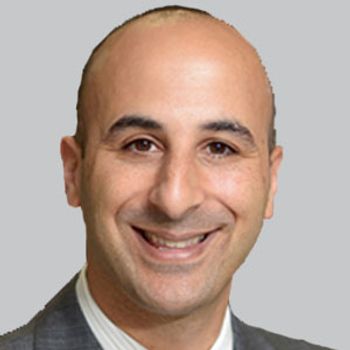
Reduced low-frequency power measured at rest was independently associated with an elevated SUDEP risk, presumably through arrhythmogenic mechanisms.

Marco Meglio, Assistant Managing Editor for NeurologyLive, has been with the team since October 2019. Follow him on Twitter @marcomeglio1 or email him at [email protected]

Reduced low-frequency power measured at rest was independently associated with an elevated SUDEP risk, presumably through arrhythmogenic mechanisms.

The optimal range of HbA1c between 6.8% and 7.0% at admission was estimated to have the minimum risk for composite vascular events and stroke recurrence, with notably different levels according to stroke subtype.

Despite not being significantly superior to placebo on agitation and aggression, lithium showed a greater reduction in those with high Young Mania Rating Scale scores.

The magnitude of neflamapimod’s effect on several efficacy measures proved to be consistent with the mechanism of action and prior preclinical data, with p-tau181 data suggesting a stronger effect on nonmixed Lewy body pathology.

Ilya Kister, MD, professor of neurology, NYU Grossman School of Medicine, discussed his surprising results from ECTRIMS, which found no evidence of wearing off with ocrelizumab (Ocrevus; Genentech).

Patients with REM sleep percentage less than 15% were associated with poorer horizontal optokinetic nystagmus grades and more severe illness.

The findings, which suggest that high plasma GFAP levels are parallel with AD and are markers of tau pathology, hold important implications in facilitating the detection of Alzheimer disease, particularly in the preclinical stage.

In addition to changes in CCL2 levels, anxiety and health-related quality of life were both significantly increased in both the valproate and add-on levetiracetam groups.

The director of the Comprehensive Epilepsy Center at NYU Langone discussed his recently published research, which identified a novel biomarker for sudden unexpected death in epilepsy.

The long-term benefits observed were due to maintenance of the early effect, rather than any additional benefit accrued after 90 days of the initial event, with no evidence either of rebound or loss of benefit.

Over 26 weeks of treatment, masupirdine demonstrated a sustained and durable effect on outcomes such as cognition and dementia-related psychosis.

Beginning enrollment in 2022, the NAUTILUS pivotal study will be the first in the United States to evaluate brain-responsive neuromodulation in patients with idiopathic generalized epilepsy.

Even after adjusting to traditional stroke risk factors, the associations between clonal hematopoiesis and all stroke types, ischemic stroke, and hemorrhagic stroke remained significant.

Despite the cohort only consisting of 3 patients with Alzheimer disease, autologous cellular therapy data highlighted the potential of the treatment’s results on cognitive assessments such as Montreal Cognitive Assessment.

Those who received an infusion of ABBV-951, consisting of foslevodopa/foscarbidopa, showed statistically significant increases in hours of ON time without troublesome dyskinesia compared with oral levodopa/carbidopa.

Twelve months after subthalamic deep brain stimulation, patients with and without RBD had MDS-UPDRS IV score decrease, MDS-UPDRS III MedOff decrease, and total LEDD decrease, with no between group difference.

In the final 3 months of treatment in the first head-to-head study of these agents, 55.4% of those on erenumab achieved at least 50% reduction in monthly migraine days compared with 31.2% on topiramate.

Originally approved in 1996, the therapy, indicated for the treatment of to partial-onset and tonic clonic seizures, is now available in a liquid formulation.

The assistant professor of neurology at Weill Cornell Medicine provided thoughts on his exploratory analysis, which found rivaroxaban to be superior to aspirin in reducing recurrent stroke.

NRTX-1001 will be first evaluated in an open-label dose-escalation study, followed by a randomized blinded portion, with both featuring patients with drug-resistant mesial temporal epilepsy.

The PHOENIX study is a follow-up study to CENTAUR, a phase 2/3 study that demonstrated AMX0035’s ability to improve survival rate in patients with ALS.

The association between white matter hyperintensity remained significant even after controlling for vascular risk factors and diseases.

Even after adjusting for the presence of diabetes, rivaroxaban remained associated with a lower risk of recurrent stroke or systemic embolism.

Repeated analyses using both 3-mm and 1-mm diameter macular data—narrower volumes than standard—showed no relevant outer plexiform layer or outer nuclear layer thinning in those with seropositive AQP4-IgG.

Performing physical activity after receiving a diagnosis of Parkinson disease was associated with a decreased mortality rate, even in individuals with PD who were physically inactive before diagnosis.

Through 36 weeks of treatment with CNM-Au8, investigators observed a slowing of disease progression and decreased number of participants with a 6-point decline on ALSFRS-R.

The director of the Multiple Sclerosis Program at Cleveland Clinic’s Lou Ruvo Center for Brain Health provided context on the EXPAND study, which evaluated treatment efficacy and safety in older and younger patients on siponimod (Mayzent; Novartis).

In a phase 2/3 setting, AMX0035 demonstrated a 44% lower risk of death for patients with ALS compared to those who started on placebo.

Three (20%) patients with Dravet syndrome had increases in seizure frequency after the first vaccine dose; however, no such increase was observed after the second dose.

An abnormal composite outcome of death or disability at age 18 to 22 months was found in 46% of those who had seizures during rewarming compared with 25% of those without seizures at rewarming.